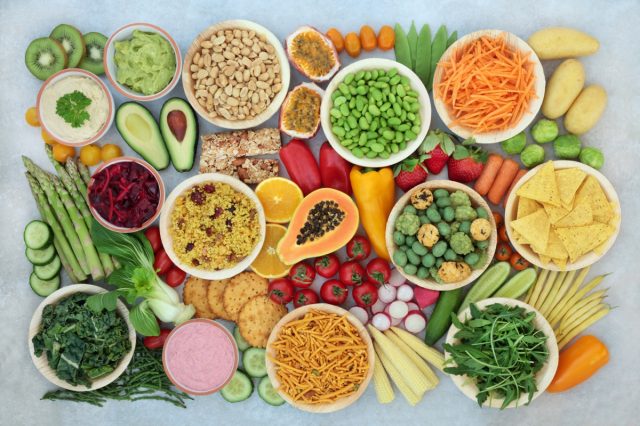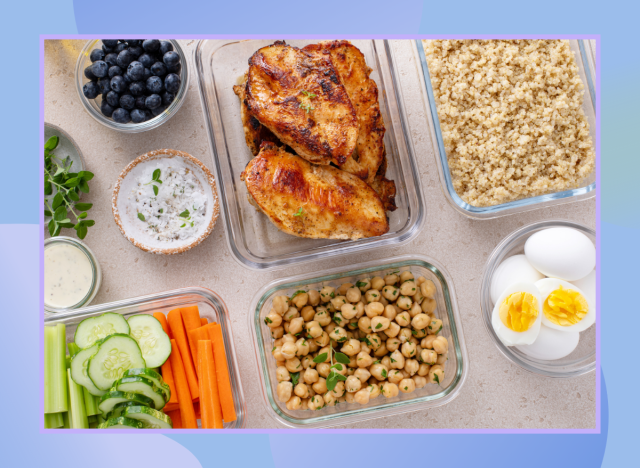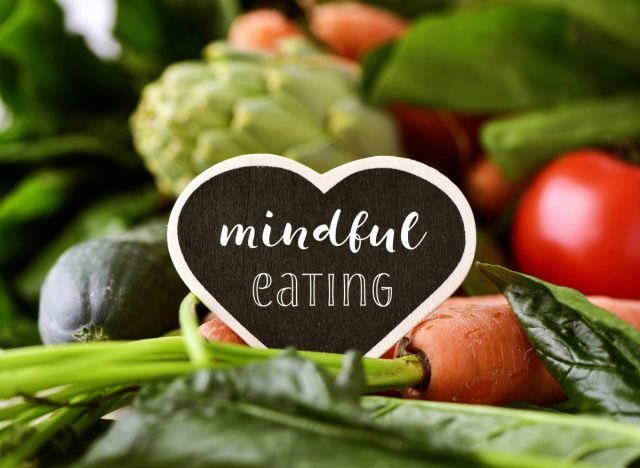7 Secrets for Women To Lose Weight After 50

Embracing the golden years of life comes many joys: wisdom, cherished memories, and the privilege of time. But with every flip of the calendar page, aging can also bring unexpected physical challenges. And for many women over 50, a primary health concern is managing and maintaining a healthy weight. In fact, according to a 2021 study, post-menopausal women in particular struggle with weight loss and are more likely to suffer from obesity when compared to men. To help get you moving in the right direction, we spoke with an expert who reveals seven of the best ways for women to lose weight after 50.
As you get older, your metabolism naturally slows down. This means those weight loss tricks and routines that worked in your 30s might not have the same effect now. But don't be disheartened. Your weight loss goals are still achievable at 50 and beyond. It's all about tuning in, understanding your body's evolving needs, and adjusting accordingly.
To learn more, we consulted Trista Best, RD, a registered dietitian with Balance One Supplements, who uncovers seven secrets for women over 50 to shed those pesky extra pounds. Read on for Best's top weight loss secrets, then check out these 8 Standing Exercises to Sculpt & Shape Your Body After 30.
Focus on balanced nutrition.

Think of your body as a classic car; it runs best with premium fuel. Fuel your body with a colorful variety of whole foods, like vegetables, fruits, legumes, whole grains, and healthy fats in your meals. A 2020 study published in the American Journal of Lifestyle Medicine found that eating a whole food plant-based diet is an effective weight loss strategy. It can also improve your overall well-being and energy levels by reducing chronic disease risk.
"Focus on a well-rounded, nutrient-dense diet rich in whole grains, lean proteins, healthy fats, fruits, and vegetables. This supports metabolism and provides essential nutrients for overall health," says Best.
Practice portion control.

It's not always about what you eat, but how much. As your metabolism changes with age, it's essential to tune into your body's hunger signals. According to the National Institutes of Health (NIH), consuming around 500 fewer calories than you torch daily is required for one pound of weight loss per week.
"Be mindful of portion sizes to avoid overeating. Using smaller plates and listening to your body's hunger cues can help regulate calorie intake," says Best.
Get in regular physical activity.

Your days of high-intensity workouts may be behind you, but regular physical activity remains as crucial as ever (if not more so) for staying healthy and losing weight. Finding activities you love— brisk walks, yoga, or dance—can make exercise less of a chore and more of a joy. Aim to get at least 150 minutes of moderately intense physical activity weekly.
"Engage in a mix of aerobic exercises, strength training, and flexibility routines," states Best. "This helps preserve lean muscle mass, boost metabolism, and improve overall fitness."
Stay hydrated.

As you age, your body might not signal thirst as effectively, so make sure to drink plenty of water. Staying hydrated aids in digestion, keeps your skin radiant, and helps curb your appetite. Make water your go-to drink, and staying hydrated should be a top priority if your goal is to lose weight.
"Drink an adequate amount of water throughout the day. Staying hydrated can help control appetite, support digestion, and maintain healthy bodily functions," states Best.
Prioritize protein.

Protein isn't just for bodybuilders. According to a 2020 study published in Nutrients, protein plays a pivotal role in muscle mass retention and metabolism in menopausal women. Incorporate lean meats, beans, and low-fat dairy sources into meals to help you shed unwanted pounds.
"Include protein-rich foods like lean meats, poultry, fish, beans, and legumes. Protein helps maintain muscle mass, keeps you feeling full, and supports post-workout recovery," explains Best.
Get quality sleep.

Never underestimate the power of a good night's rest. According to a 2015 study, sleep does more than recharge you; it balances hormones that regulate hunger and appetite. Prioritizing seven to nine hours of uninterrupted sleep can be your secret weapon against unintentional weight gain.
Best says, "Sleep is crucial for hormone regulation, metabolism, and overall well-being, aiding weight loss efforts."
Eat mindfully.

Research shows that mindful eating can support healthy weight loss. If you're unfamiliar with the practice, eating mindfully means being present during meals, appreciating flavors, and listening to your body's cues. It enhances the dining experience and helps recognize when you're genuinely full, reducing your odds of overeating.
"Pay attention to what you eat and savor each bite. Mindful eating can prevent overconsumption, promote enjoyment of food, and enhance the satisfaction of meals," says Best.
- Source: https://www.ncbi.nlm.nih.gov/pmc/articles/PMC8373626/
- Source: https://www.ncbi.nlm.nih.gov/pmc/articles/PMC7444011/
- Source: https://newsinhealth.nih.gov/2022/12/healthy-weight-control
- Source: https://www.ncbi.nlm.nih.gov/pmc/articles/PMC10255140/
- Source: https://www.ncbi.nlm.nih.gov/pmc/articles/PMC7468767/
- Source: https://pubmed.ncbi.nlm.nih.gov/31368631/









